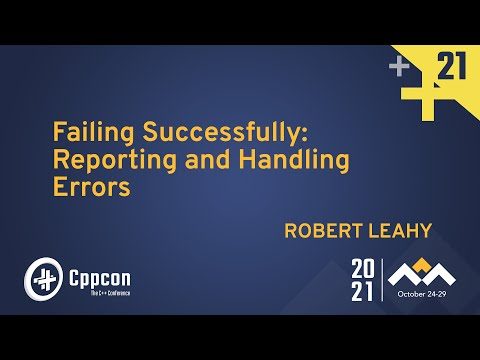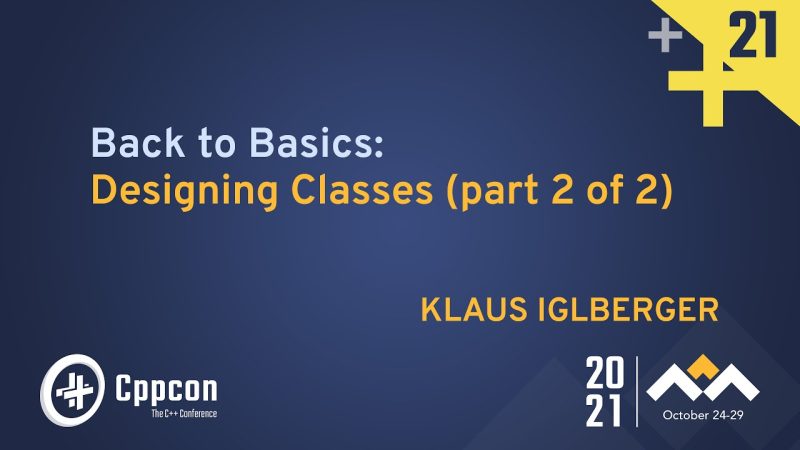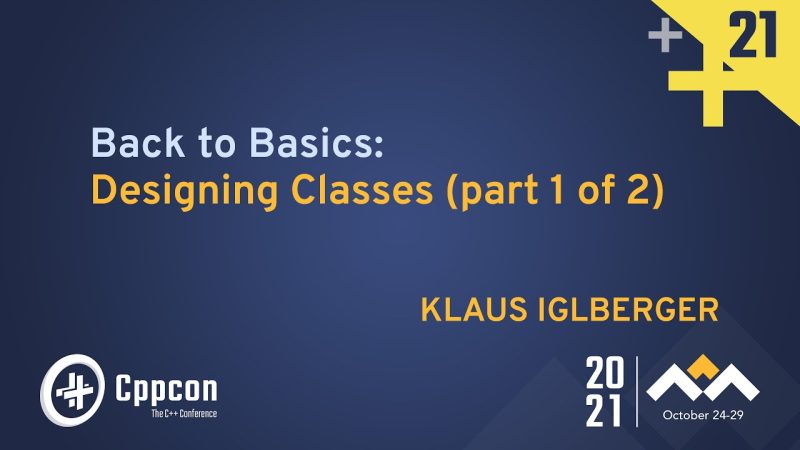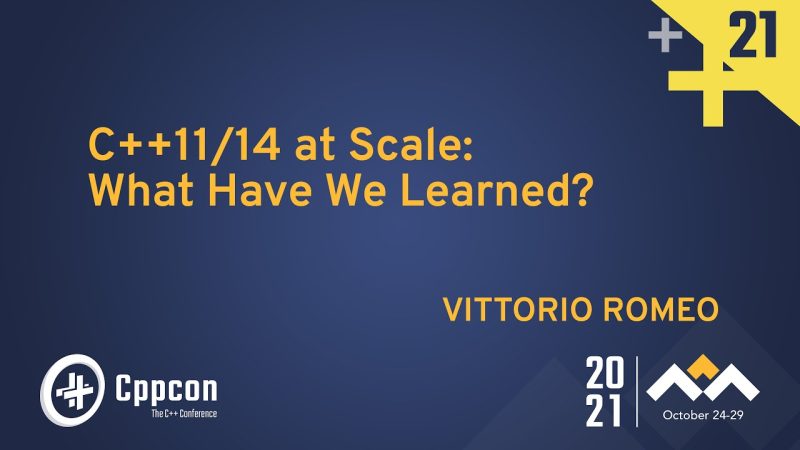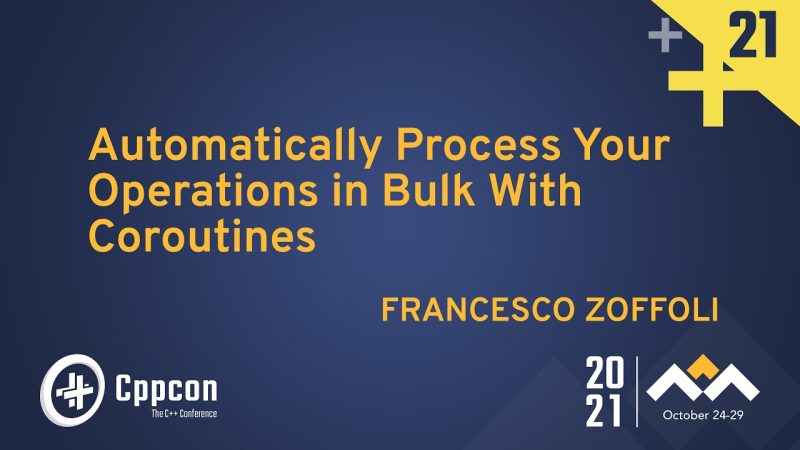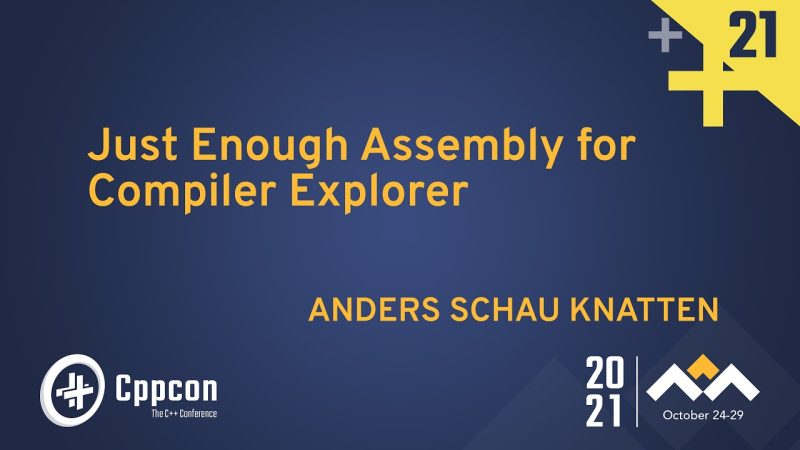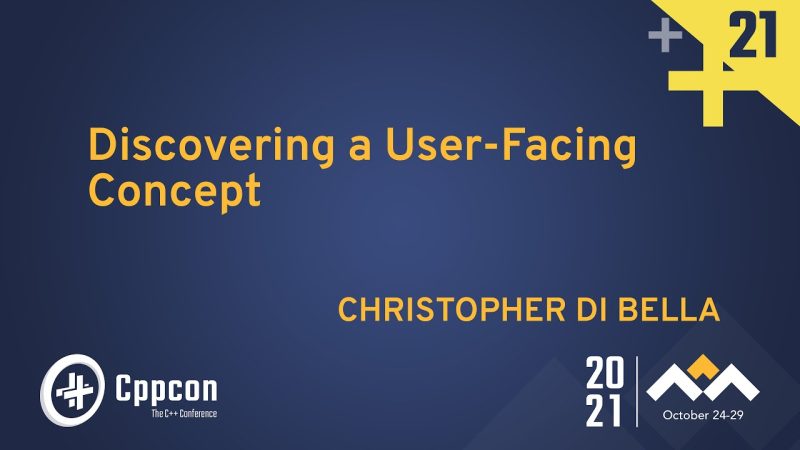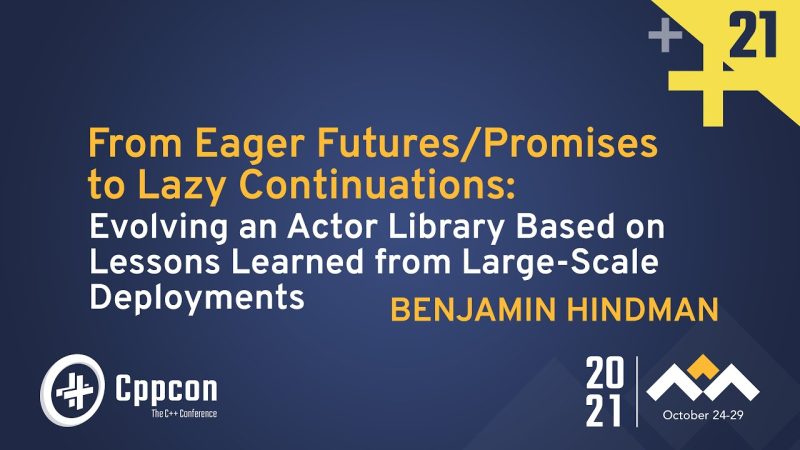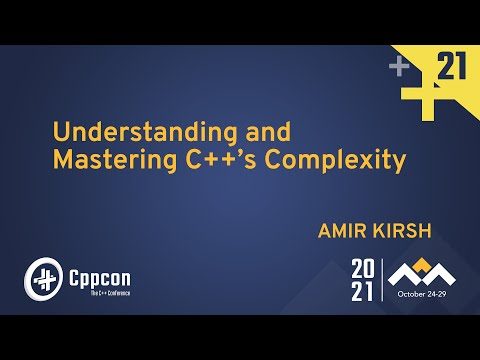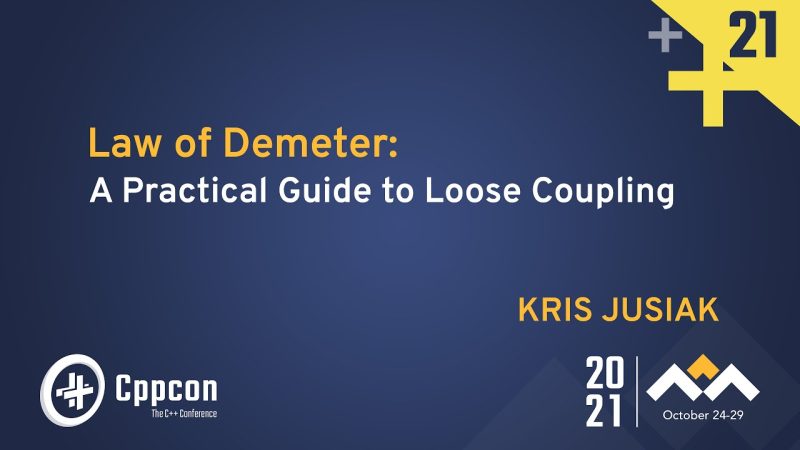https://cppcon.org/
https://github.com/CppCon/CppCon2020
---
Writing code which successfully accomplishes a task is difficult. Four year software engineering degrees are, after all, spent learning something of substance. This difficulty only compounds as the code in question becomes less and less trivial. Successful accomplishment is not the only outcome of well written, real world software however: Tasks can fail for a variety of reasons.
From a certain point of view success is the least interesting outcome in software engineering. No one is woken up in the small hours of the morning because their software succeeded. Much gets said about the Ariane 5 but have you heard of the Ariane 4 or 6? It’s plausible that dealing with errors appropriately is the most important responsibility of a software engineer.
This talk will discuss errors and exceptions, how, when, and why they should be generated, how code should be structured to handle them, and what techniques can be used to ensure such situations are reported with sufficient context that the cause can be identified and addressed with minimal software engineer involvement.
---
Robert Leahy
Robert is a graduate of the University of Victoria where he specialized in graphics, gaming, and digital geometry processing. After 4.5 years in full stack web development he switched to financial infrastructure software development in early 2017. He’s since become involved in the ISO C++ committee while delivering high quality, process-driven code to meet the rigorous performance standards for which finance is so well known.
---
Videos Filmed & Edited by Bash Films: http://www.BashFilms.com
YouTube Channel Managed by Digital Medium Ltd https://events.digital-medium.co.uk
The CppCon YouTube Channel Is Sponsored By:
JetBrains : http://jb.gg/cpptools
SonarSource: https://www.sonarsource.com/


